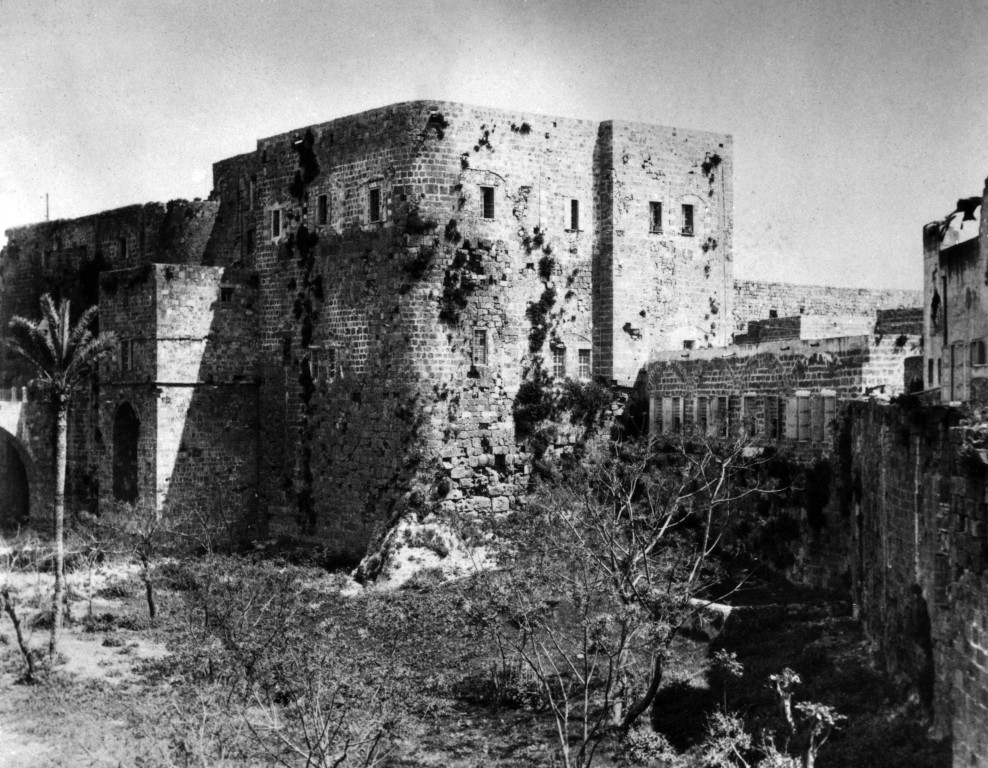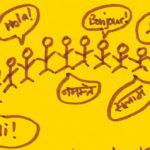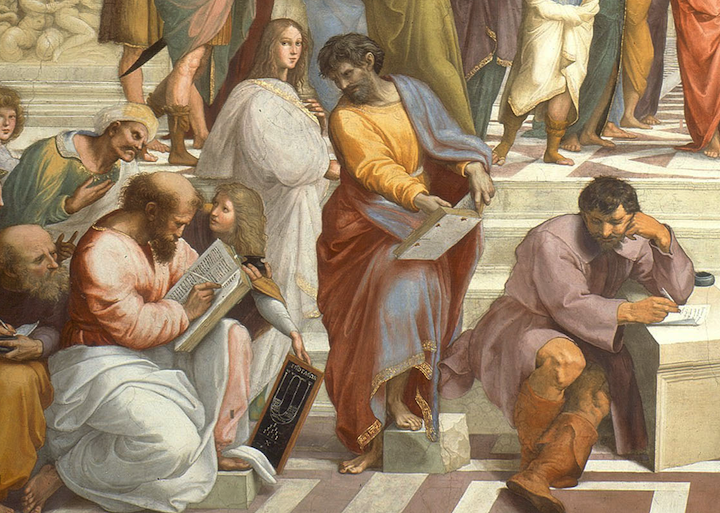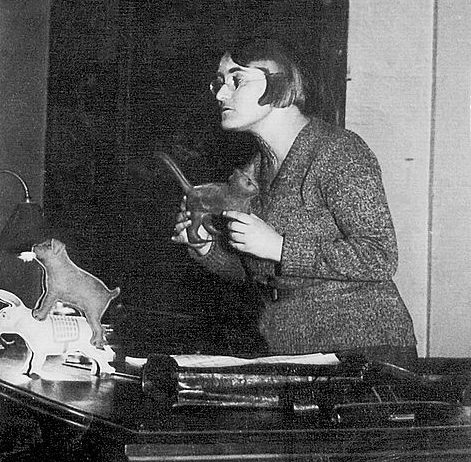
Lidia Zamenhof and a World Language
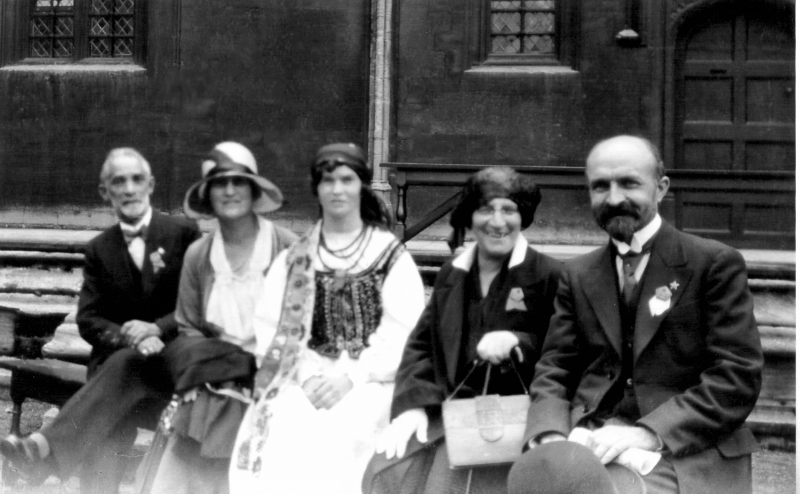
Lidia Zamenhof’s famous father was the creator of the Esperanto – perhaps the most successful effort to create an international language. Lidia herself devoted herself to promoting the language and also to teaching the Baha’i Faith of which she had become a member. Undoubtedly Bahá’u’lláh’s call for adoption of a world language would have resonated strongly with her, given her own commitment to it.
Her own life was tragically cut short in World War II, the coming of which Bahá’u’lláh specifically predicted. Irrespective of the specifics, it’s clear that World War II was one of the consequences of clinging to patterns of thought and modes of behaviour inadequate to the needs of a mature humanity.
Lidia was the youngest daughter of Ludwig Zamenhof, the creator of Esperanto. She was born in 1904 in Warsaw, then part of the Russian Empire. Her family was Jewish and one of the factors that led her father to create the language was the desire to create a vehicle for fostering a peaceful and united world.
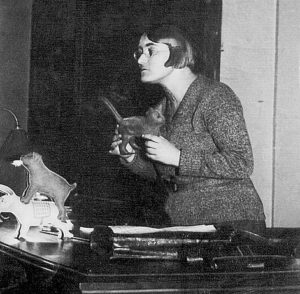
Although the full horrors of unconstrained nationalism were still in the future, he did not believe that human welfare lay in that direction. Indeed he was “profoundly convinced” that nationalism was harmful to human beings.[1]
Lidia learnt her father’s language by age 9. At age 13, her father died and she inherited, together with her mother, the mission of promoting Esperanto.
By 1925 Lidia had graduated in law and had decided to become an atheist. However religion soon became an important part of her life. In that year she was invited to a “Baha’i meeting” in Geneva – meeting Martha Root – herself a speaker of Esperanto. Lidia became a Baha’i and went on to teach Esperanto and the Baha’i Faith in the United States in the late 1930s. She saw the progress of Esperanto as an evidence of the creative influence of Bahá’u’lláh words:
The international language is part of the Divine Plan which is given effect in the era of Bahá’u’lláh. And the creation and spread of Esperanto are proofs of the creative power of Bahá’u’lláh’s words.[2]
Jewish arrivals from Europe were not greatly welcome in the United States in the late 1930s, and despite efforts to extend her stay her visa was not renewed and she was compelled to return to Europe.[3]
Her vision and striving was for a better future for all human beings. She was not to have any kind of future for herself. On her return to Poland she continued her work for the promotion of Esperanto and the Baha’i Faith, including translating Baha’i writings into Esperanto.
Not long after Nazi Germany invaded. She was arrested together with her family on charges of spreading “anti-Nazi propaganda” while in the United States. She and her family were sent to the Warsaw Ghetto. Despite efforts of her Esperanto friends and a German Baha’i soldier to smuggle her out, she refused to leave her family.
In July 1942 she and her family were sent to Treblinka. She perished in the Holocaust. She was one of millions.
The dream of an international language to which she dedicated her life is still nurtured by many. One day it will be achieved.
The day is approaching when all the peoples of the world will have adopted one universal language and one common script. When this is achieved, to whatsoever city a man may journey, it shall be as if he were entering his own home. These things are obligatory and absolutely essential. It is incumbent upon every man of insight and understanding to strive to translate that which hath been written into reality and action.[4] ( Bahá’u’lláh )
Unity prayer in Esperanto:
Ho mia Dio ! Ho mia Dio ! Unuigu la korojn de Viaj servantoj kaj revelaciu al ili Vian grandan celon. Ili sekvu Viajn ordonojn kaj estu fidelaj al Via leĝo. Helpu ilin, ho Dio, en ilia penado kaj donu al ili forton por servi al Vi. Ho Dio ! Ne lasu ilin solaj, sed gvidu iliajn paŝojn per la lumo de Via scio kaj ĝojigu iliajn korojn per Via amo. Vere, Vi estas ilia Helpanto kaj ilia Eternulo. ( Bahá’u’lláh )
O my God! O my God! Unite the hearts of Thy servants, and reveal to them Thy great purpose. May they follow Thy commandments and abide in Thy law. Help them, O God, in their endeavor, and grant them strength to serve Thee. O God! Leave them not to themselves, but guide their steps by the light of Thy knowledge, and cheer their hearts by Thy love. Verily, Thou art their Helper and their Lord.
Image: Photo taken at the Esperanto World Congress in 1930. Lida Zamenhof is second from the left. Oxford. https://commons.wikimedia.org/wiki/File:Esperanto-Weltkongress_Oxford_1930.jpg
Selected Bibliography:
Lidia Zamenhof Bahaikipedia entry
Lidia Zamenhof Wikipedia entry
Lidia Zamenhof, a cosmopolitan woman and victim of the Holocaust

